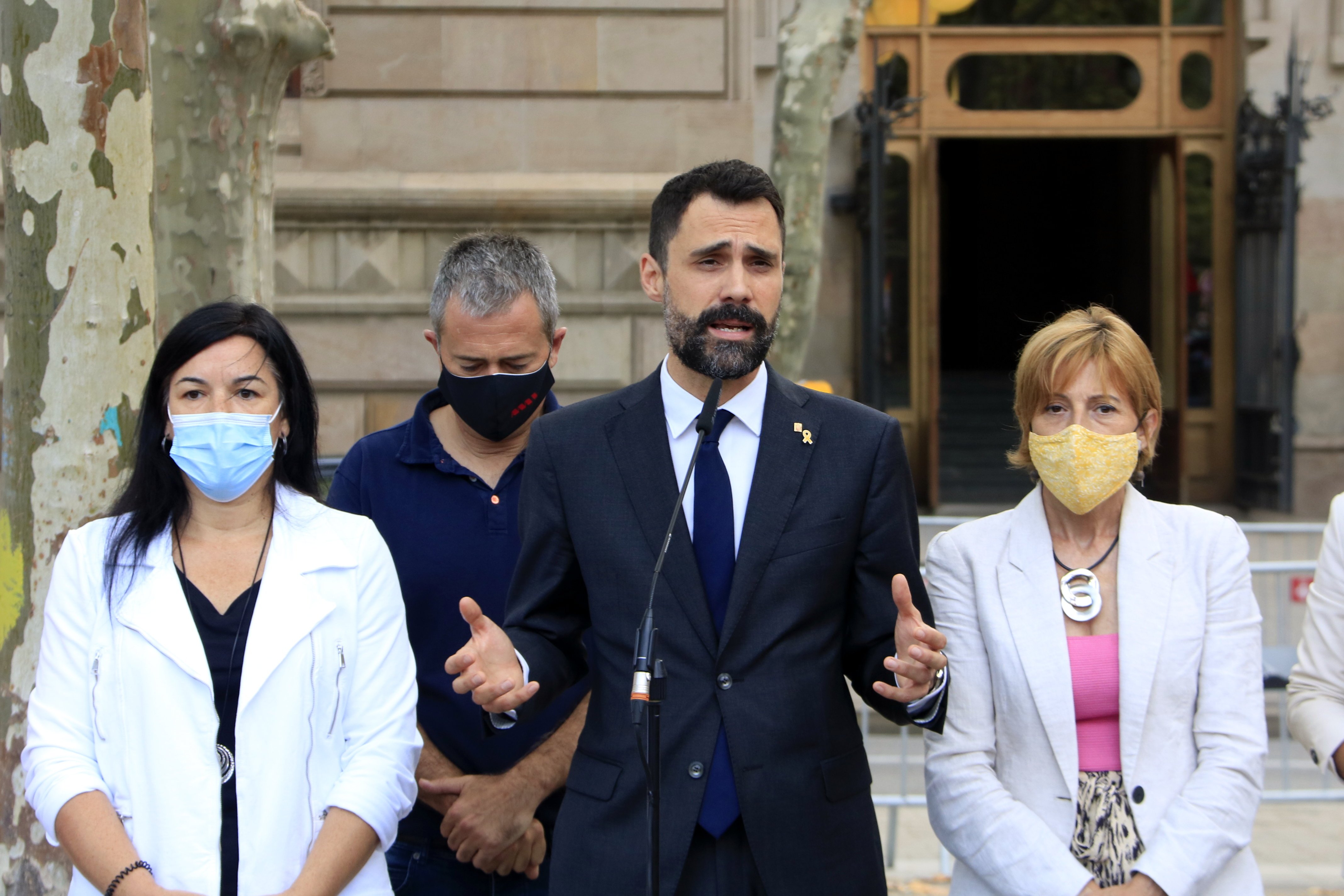The High Court of Justice of Catalonia (TSJC) has left the current Catalan enterprise and employment minister and former parliamentary speaker, Roger Torrent, and three other former members of Parliament's procedural Bureau, only one step away from being sent to trial for their decision to permit parliamentary debates over resolutions on the Spanish monarchy and the issue of Catalan self-determination in November 2019. With the judicial investigation completed, the judge sees evidence of disobedience in the actions of Torrent, former deputy speaker Josep Costa, former Bureau secretary Eusebi Campdepadrós and the former fourth secretary of the Bureau, Adriana Delgado.
Torrent and the Bureau members were called to testify before the investigating judge on 15th September. That was, however, the day that Josep Costa chose to disobey his summons and stay away from the court, an action for which he was arrested on October 27th. In their accusation, the public prosecutors accuse the four pro-independence politicians of having admitted to proceedings and allowed parliamantary debate on the text of two resolutions, on 12th and 26th November. The first contained a commitment to the exercising of the right to self-determination, while the second, a resolution in response to the Supreme Court's verdict in the Catalan leaders trial of that year, stated its disapproval of the Spanish king.
The prosecutors recalled in their accusation that the Constitutional Court ruling of December 2nd, 2015, declared unconstitutional and null the resolution 1/XI of the Catalan Parliament of November 9th, 2015 on the start of an independence process in Catalonia arising from the results of the election held weeks previously, on 27th September 2015. The court at that time suspended the parliamentary resolution and reminded the Bureau of its duty "to prevent and paralyze any parliamentary initiative that would ignore or evade the agreed suspension" and warned the Bureau at that time that its members could incur responsibilities, including criminal charges, if they failed to do so. In its text, the prosecution considered that the four defendants currently accused failed to comply with this sentence by allowing the two debates in 2019.
In the case of the debate on self-determination, on October 28th, 2019 the CUP-CC parliamentary group registered a motion expressing the will of Parliament "to exercise the right to self-determination in a tangible way and to respect the will of the Catalan people". On October 29th, the Bureau admitted this resolution for parliamentary hearing; and on November 5th, it rejected the requests made for a reconsideration by the PP, PSC and Cs; and on November 12th, the resolution was debated and passed in Parliament. The prosecutors recall that on 12th November the Constitutional Court had admitted to proceedings an incident of execution for non-compliance with its rulings and that those affected were notified of their "duty" to prevent the initiative.
In the case of the second resolution, expressing disapproval of the Spanish king, the prosecution notes that on October 22nd, the three political groups Junts, ERC and CUP-CC registered the proposed resolution in response to the Supreme Court's sentences, and that it included a statement asserting that "Parliament reiterates, and will repeat as many times as MPs, want its disapproval of the monarchy." The Bureau admitted this resolution for processing; on October 29th, the requests for reconsideration were rejected and on November 12th, it was debated and passed by a majority of the Catalan Parliament.
The prosecutors recall that in the judgment of 17th July 2019, the Constitutional Court had already declared unconstitutional and null sections of a Catalan Parliament resolution disapproving of the king's actions in relation to the independence process. In a subsequent resolution - dated July 25th, 2019 - the reproach to the king Felipe VI was reiterated again, and on December 18th the constitutional judges declared these sections of the resolution null and void once again.
In fact, the Catalan Parliament's resolution in response to the sentence in the pro-independence leaders' trial - the second of the motions that led to the complaint - also included a defence of the right to self-determination, with the commitment that "Parliament reiterates and will reiterate as many times as Mps want (...) its defence of the right to self-determination and the vindication of the sovereignty of the people of Catalonia".

